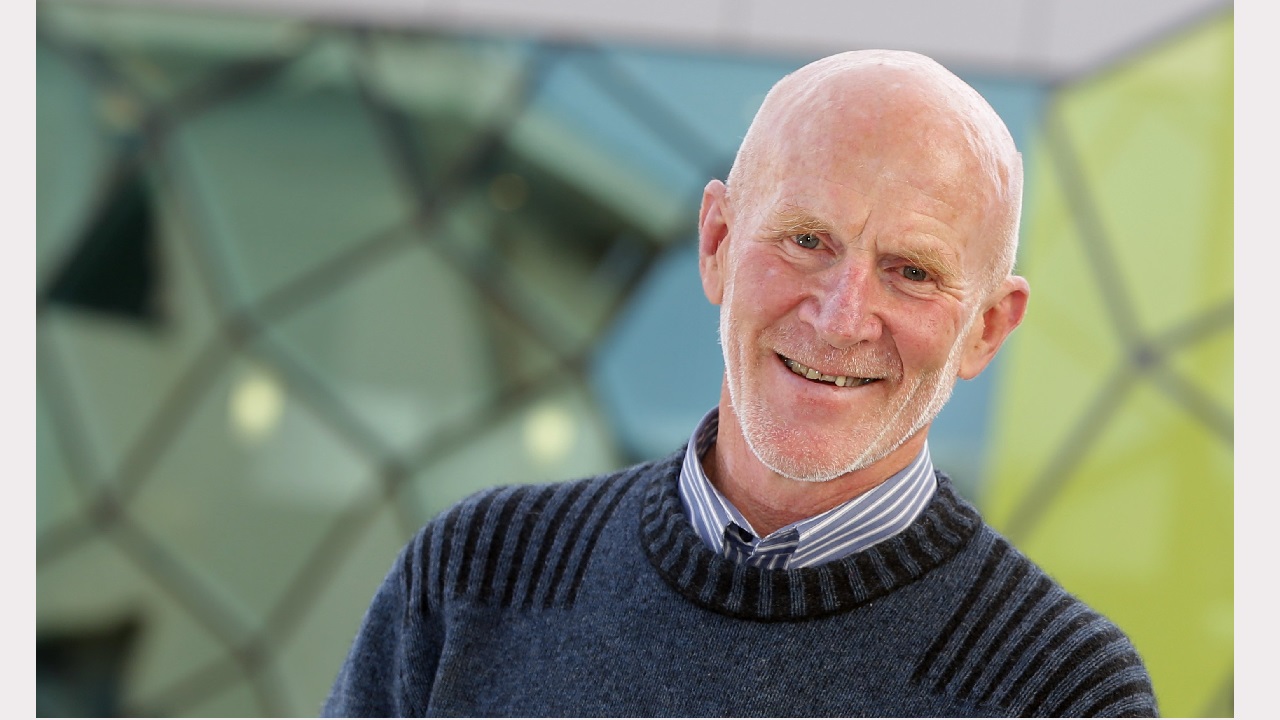Small community achieves inspiring new hospice-in-the-home service
Small community achieves inspiring new hospice-in-the-home service
by Heather Wiseman
Wednesday, January 20, 2016
After five years of hard work and planning, a dream has been realised in the small Victorian community of Warrnambool. A new not-for-profit hospice service, staffed by volunteers, has started providing care for local people who wish to die at home.
Bill Miller was upset to watch his elderly wife pass away in a Melbourne hospital, and often reminded his two adult daughters that – for him – dying in hospital was not an option. In his late 80s, he wanted to continue living, and one day die, in his Warrnambool home.
On the surface that sounded a simple wish, but as Mr Miller’s health declined, his daughter Jeanette Miller knew the family couldn’t manage a home-death on their own. She and her sister Leanne Miller were grateful for a new innovative hospice-in-the-home service and relieved to be the first family to receive its support.
Locally funded Warrnambool and District Community Hospice has a workforce of trained volunteers who provide round-the-clock practical support, ranging from washing dishes to helping with transfers from beds to chairs, and offering evening respite so supporting relatives or friends can sleep. While many volunteers are nurses, they do not administer medication or provide advice, focussing instead on any practical support that will make a difference.
“Enabling Dad to die at home was an absolute achievement.”
The community hospice’s vice president, Deirdre Bidmade, says extensive research suggests theirs is the first service of its kind in the state.
“While we have our district nursing and community palliative care services locally, there isn’t anybody who can do the long haul of extended weekends and overnight care. That is where we become the first of our kind.”
Without the service, the Miller sisters may not have been able to honour their father’s wishes. They are grateful to have been by his side when he passed away, late last year at the age of 87 in his family room.
“Enabling Dad to die at home was an absolute achievement,” says Jeanette.
“My sister and I just felt so blessed that we could make this happen for him. But we couldn’t have done it on our own. For a start, we didn’t know how. We are eternally grateful to Warrnambool and District Community Hospice for without them we could not have made this happen.
“Having loads of local support gave us the confidence we needed, to know people would visit him at home and to know people would help us and give us some respite.”
Ms Miller says her father would have opted for hospital if he thought he was being too much of a burden on his family. He would also have resisted being nursed by people he didn’t know. But hospice volunteers started offering support about three months before his death, when it was clear his health was failing, so he got to know them.
“He was a private person so it was important that started to happen quite a few months before he died.”
His death was so peaceful, that it has left his home with fond memories for the sisters, who chose to spend Christmas day there, as the 25thDecember was also their father’s birthday.
“We had a lovely time with him in the end. We had a hospital bed organised and he sat up in the family room, where he always used to sit,” says Ms Miller.
“He was breathing heavily, and then his breathing slowed.
“We told him we loved him said ‘It’s okay, now go to Mum’. And he went. He was definitely at peace and happy. I think it was a beautiful death.”
The community hospice’s president Dr Eric Fairbank says more than five years of planning has gone into the new hospice-in-the-home service. The retired general practitioner, who spent 13 years as a palliative-care physician, says it resulted from identifying gaps in existing services and realising that many people end up dying in hospital for social, rather than medical, reasons.
With financial support from local trusts, foundations, and generous philanthropists, and a headquarters subsidised by Deakin University, the service has trained 37 local volunteers and employed a manager. Another 12 volunteers are on a waiting list, keen to do the next round of training.
“We put our volunteers through the Palliative Care Victoria nine week course and we added on some practical hands-on-skills,” says Dr Fairbank.
Dr Fairbank says the service runs four shifts, including one overnight.
“If a family is getting exhausted they might need a decent night’s sleep, so a volunteer can go in. They might also be able to go away for a day. There weren’t any other services that were doing that.”
He says the service aims to fill gaps, rather than doubling up on services, and works closely with the local public and private hospitals. When the service gets a referral, it notifies Community Palliative Care at the base hospital, and their palliative care nurse does an assessment.
“She will say if they need to be involved too. Then we decide if the referral meets our admission criteria.”
He said the service planned to extend its work this year, also running community workshops to help people talk about dying and start advance care planning.
